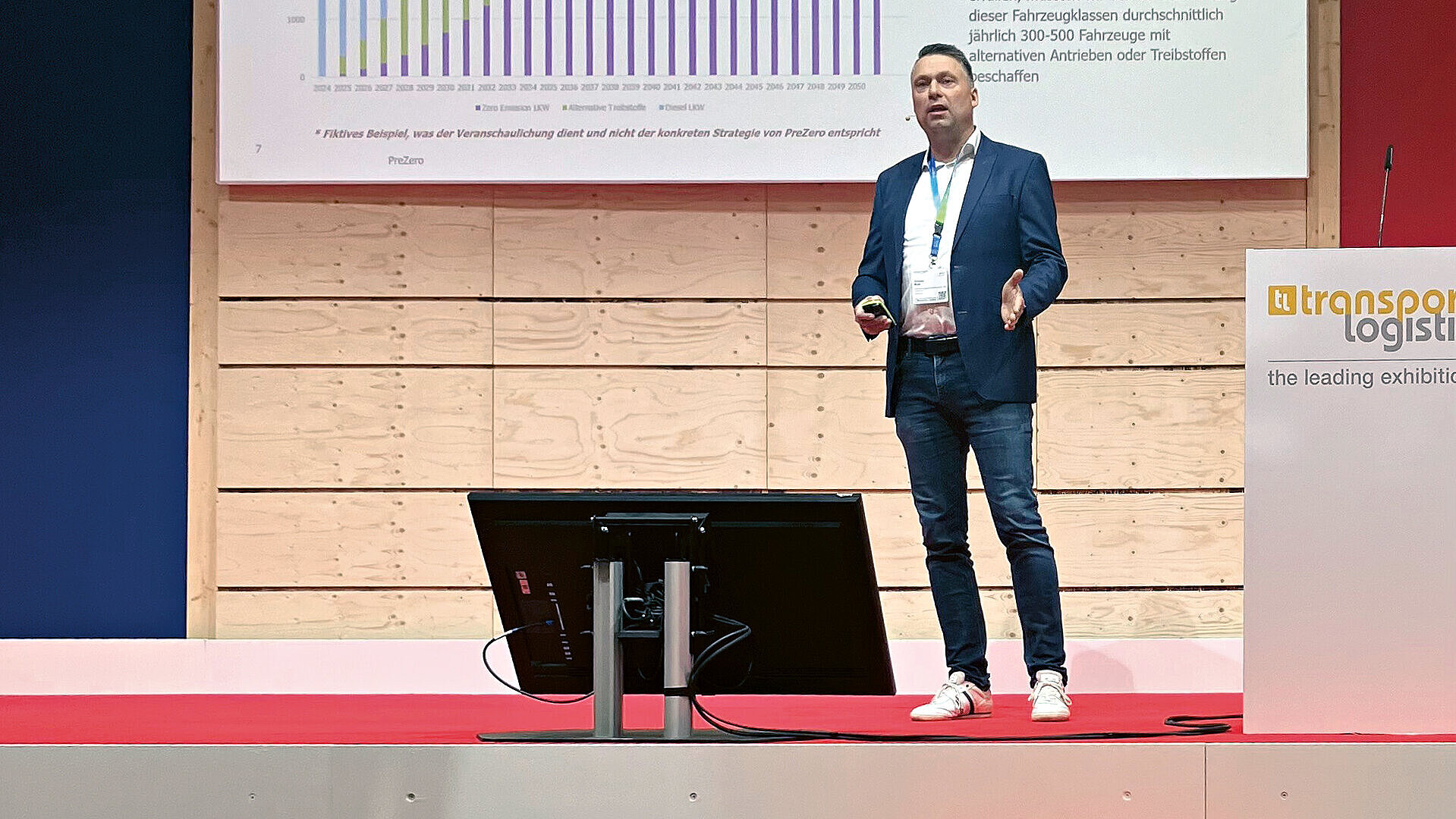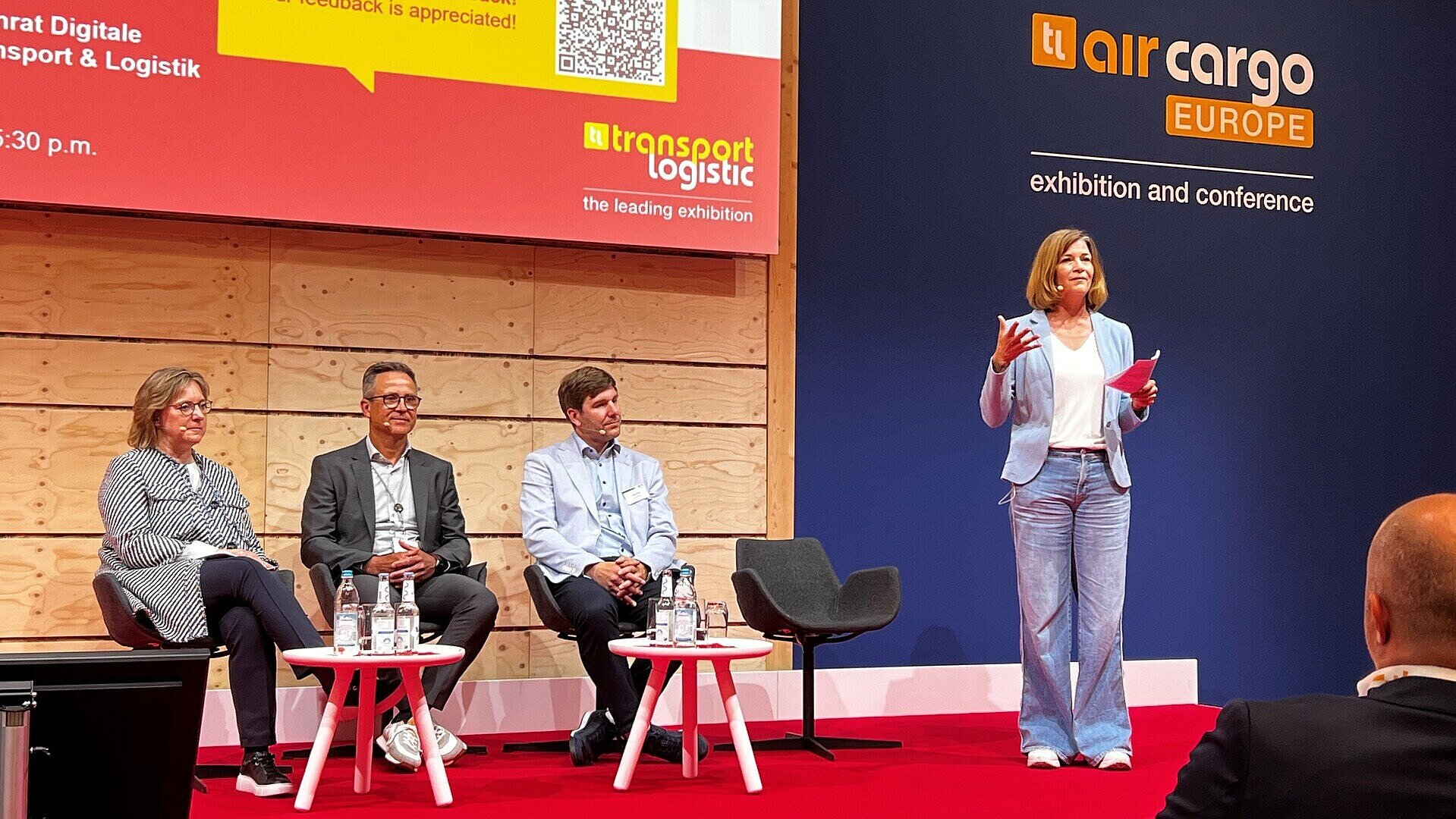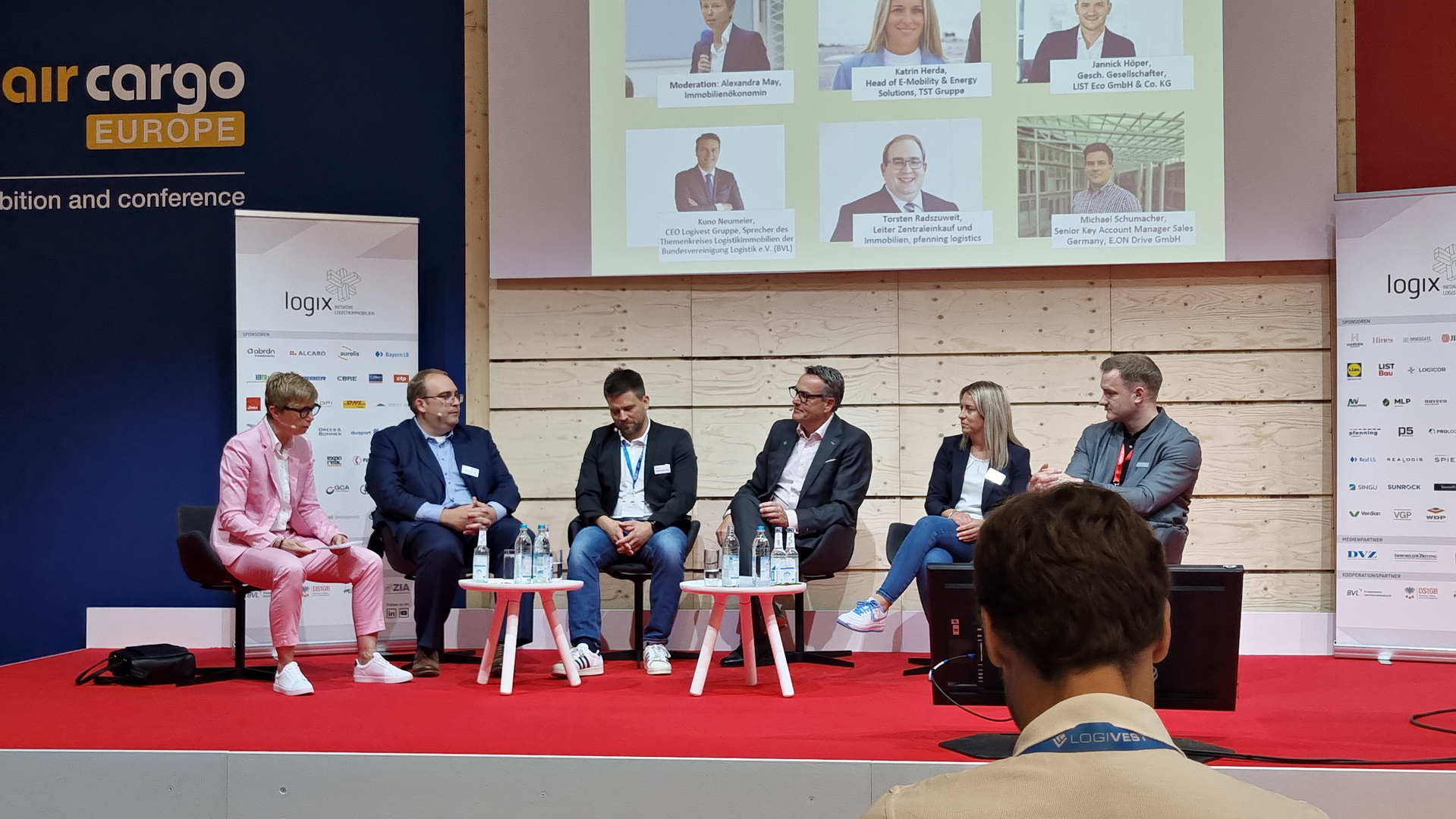
Long way to zero

The logistics subsidiary of environmental services provider PreZero, part of the Schwarz Group (Lidl/Kaufland), operates around 5,000 collection and disposal vehicles every day in Germany alone – across narrow residential areas and industrial estates. For Maik Gronau, responsible for logistics at PreZero, there is no question that this fleet must become more climate-friendly.
But the road ahead is long and rocky, as he emphasised in his presentation yesterday in the lecture series ‘Sustainable, Automated, Efficient: Consumer Goods Logistics Between Climate Protection and Artificial Intelligence’ at transport logistic. His focus was on comparing current and future drive technologies in heavy-duty transport. ‘We want to improve our carbon footprint and decarbonise our fleet,’ explained Gronau.
However, progress has been modest so far: ‘Of our 12,000 vehicles in Europe, around 700 to 800 are currently on the road with alternative drive systems – including around 40 electric trucks and fewer than ten hydrogen trucks.’ That is not enough to meet the ambitious targets of the Schwarz Group or even political targets such as the phase-out of combustion engines by 2035.
Gronau sees both positives and negatives, particularly when it comes to battery-powered trucks. ‘Electric drives have an efficiency rating of 80 to 90 percent, which is excellent,’ explains the logistics manager. ‘But the vehicles are very expensive, heavy and, above all, there is no charging infrastructure.’ It takes PreZero an average of six months to set up a single charging station. And even then, often only two trucks can be charged at the same time – completely inadequate for locations with up to 50 vehicles. ‘We have locations where there is not enough electricity – neither in terms of capacity nor grid connection.’
H2 is expensive
The situation is hardly any better when it comes to hydrogen. H₂ trucks do offer advantages thanks to smaller batteries and shorter refuelling times. However, the technology is complicated and expensive. Gronau: ‘Liquid hydrogen has a temperature of minus 260 degrees. What happens if the technology fails? Then the hydrogen simply evaporates – and the truck comes to a standstill.’ In addition, a hydrogen vehicle costs many times more to purchase than a diesel vehicle. Germany is also far from ready to operate a refuelling infrastructure.
As a pragmatic interim solution, PreZero is increasingly focusing on alternative fuels such as HVO (hydrotreated vegetable oil). These can be used with conventional diesel technology and offer advantages in terms of CO₂ balance. However, Gronau also sees limitations here: ‘These biogenic fuels are produced from food waste, which is limited.’
At the same time, he emphasises that PreZero is not only focusing on new drive systems, but also optimising existing vehicles. Engine software, improved utilisation and more efficient routes could reduce emissions without immediately replacing the fleet. Nevertheless, he says: ‘If we want to become climate-neutral, we would have to procure 300 to 500 emission-free vehicles every year – that is not realistic at present.’
In addition to technology, Gronau sees political and regulatory hurdles as the main obstacles. For example, the toll exemption for electric trucks will expire in 2026, while CO₂ pricing and procurement quotas are rising. ‘In tenders, we will have to offer at least 15 percent of our vehicles with alternative drive systems from 2026 onwards – that is required by law. But without suitable vehicles and infrastructure, that will be difficult.’
Gronau's conclusion is nuanced: ‘Diesel is inefficient, but available. Electric trucks are efficient, but expensive and limited in terms of infrastructure. Hydrogen trucks are promising, but not yet technically mature. And alternative fuels are finite.’ For PreZero, this means: ‘We need location- and application-specific strategies. There is no one-size-fits-all solution.’
Gronau issued a particularly urgent warning against hasty investment decisions: ‘What worries me most is the risk of strategic misjudgements. If we commit to a technology that ultimately fails to catch on, we stand to lose a lot.’ Even vehicle manufacturers who are still committed to a particular technology today could abandon it tomorrow. That is why PreZero is committed to technological openness and is constantly testing new systems. ‘We are prepared to invest money. But we need reliable political framework conditions and available technology.’ (rok)



